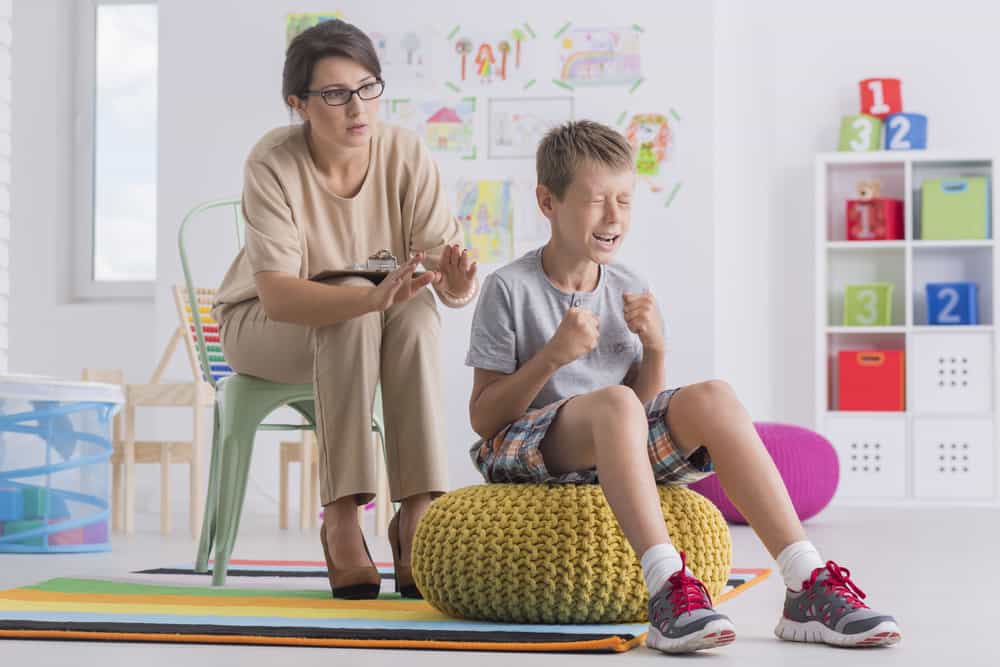How to Engage Children In Speech Therapy
Children may think it’s boring, don’t like the speech therapist, might not enjoy the tasks or could not get along with the people in their group.
I believe it’s very valuable and important to shift our thinking as speech therapists from “why won’t the child participate in therapy” to “what can I do to modify the environment so that the child wants to learn?” Oftentimes, it’s a very easy fix, but if a child cannot communicate what the problem is, they react in a negative manner, such as not participating or acting out.
Children only do what works for them or what we, as adults, have accidentally taught them in the past. If a child is sliding under the table and refusing to work and the parent takes him home, the child accidentally learns how to get out of learning situations. If a child has many experiences with learning situations that result in failure, it’s not surprising that they would be motivated to escape learning situations. I’ve had parents ask me if they should take the child home and I always say, “no.” I’d rather deal with a rough session (or four) than have the child realize he/she can avoid therapy.
So, if a child is attempting to escape or avoid learning situations, we must do two things.
1. Learn Your Child's Triggers
First, we have to make sure that the child’s behavior never results in escape again. How? At the beginning of any therapeutic relationship, it’s important to be careful of the demands we place on the child. We must avoid giving the child instructions to do anything that we are not willing or able to prompt them through doing. We need to learn their triggers and what causes the escape to occur. I had a kid who would immediately bolt from the room when I brought out a certain toy. After hiding that toy, he stopped trying to escape speech therapy.
To start out, we figure out lots and lots of different things that motivate that child and give it to them unconditionally. These things that the kid enjoys or is motivated for become potential reinforcers. Motivation is a critical part of teaching any skill.
If the child is not motivated for anything, we have nothing to reinforce the skills we want to teach. If we are not reinforcing, we are not teaching. These things can be stickers, erasers, or picking from a prize box. I try and avoid food as a reinforcer!
2. Provide a Rewarding Speech Learning Environment
The second thing that we must do if a child is attempting to escape or avoid learning situations is that we make sure we are teaching the child in a way in which he can be successful.
As human beings, we generally tend to enjoy doing things that we’re good at and avoid doing things that we’re not good at. When kids have Apraxia of Speech, we are asking them to do something that is very difficult for them. The older that children are the more experience they’ve had with failure when attempting to talk. Thus, we have to provide models and prompts that they can successfully approximate and heavily reinforce every attempt that they make at the target sound or movement.
We also need to look at the parents. You are the most important person in your child’s life. We, as speech therapists, need to train and educate you on how to best help your child in the home environment. Every interaction is a chance for your child to learn, so be sure everyone in your child’s life is teaching them what you want them to learn.
As difficult as it is, everyone needs to be firm. If the speech therapist is giving positive reinforcement and attempting to stop the negative behavior, it’s important the carryover is happening at home. I know this is easier said than done. For example, if you are trying to eliminate temper tantrums before bed time because your child won’t stay in their beds, whatever you do for one night, you need to be consistent. This is true even if they scream and throw an absolute fit.
Consistency is key in any sort of therapy; not just speech therapy. Get suggestions from your speech therapist regarding motivational strategies and things you can do at home to keep your child interested.
In all honesty, if therapy doesn’t improve, I would suggest switching therapists. Sometimes kids just don't mesh with certain therapists and that is OKAY! It won’t hurt your therapist’s feeling, it happens! It’s better to discover this out early and rectify the situation than stick it out for too long and have your kid not progress as quickly!
 By Stacie Bennett
By Stacie Bennett